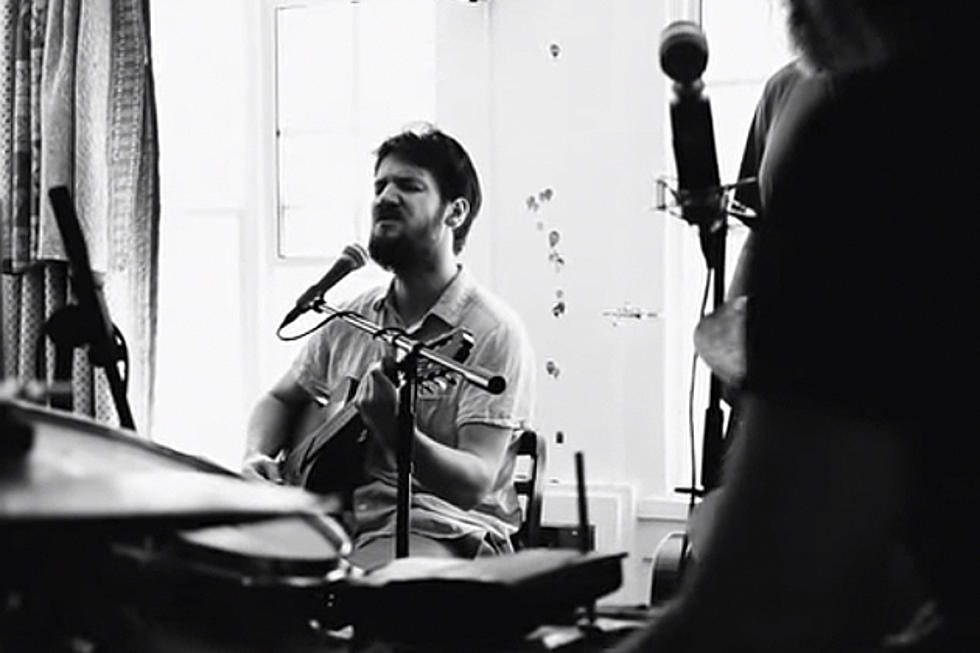
Blake Mills Opens Up About ‘Heigh Ho,’ Radio Edits + Vinyl
Blake Mills is celebrating the release of his highly-anticipated sophomore release, 'Heigh Ho.' During the four years between 2010's 'Break Mirror's and the new album, Mills spent time in the producer's seat working on Sky Ferriera's 'Ghost EP,' Sara Watkins' 'Sun Midnight Sun' and Jesca Hoop's 'The House That Jack Built.'
Chatting with us from Bismarck, N.D., Mills took some time to chat about his new album and what the writing process was like compared to 'Break Mirrors.' He also makes -- surprisingly -- a compelling argument for why 'Heigh Ho' is best heard on CD and not vinyl.
First, congrats on 'Heigh Ho.' I know it's getting great reviews -- at Diffuser, we gave it our 'Editors' Pick' stamp of approval. By and large, it's one of my favorite albums of the year. How does it feel to have it out to the masses?
The experience of releasing music in this day in age is a loaded experience. Because you have to understand people experience it differently. Everybody has their own process. Sometimes somebody will take the record and put it on in a car and go for a drive and really have a one-on-one experience with it. Sometimes they'll have it on in a restaurant and you'll barely hear the high hats and that's the listening experience. There's no control at that point of release with how people are going to enjoy, or not enjoy your music. It's definitely a shift from the experience of making it and then having all of that freedom and control and all the great things about making music that don't really seem to translate once the record comes out.
So, I've actually gone dark from the social media that is surrounding the record. I've been focused on the shows. The tour that we're in the middle of right now and going from one -- I don't know if you'd call them opuses -- but one project to the next. Going from making a record to working on the show and playing with the band and for audiences and see how this stuff starts to evolve.
What was the writing process like on 'Heigh Ho'? I hear so many different influences -- I hear it going in many different directions but it somehow maintains this cohesive sound from start to finish.
It was definitely very scattered. Some of those songs were written two to three years before the record was made. Some of them were written while the record was being made. So it was definitely from a few different vantage points. I think a lot of people think bands and recording artists get to spend their entire life writing their first record before they make it. Then, sometimes the followup -- for commercial reasons -- has to come out a year or two after that record, at the longest. So they have a short amount of time to write their second record. With me, since I wasn't really primarily a singer-songwriter or exclusively a singer-songwriter, I've spent a few years, I think four years in total, just kind of writing and compiling and not necessarily with the intention of making another record but writing for the sake of writing. A lot of the songs -- the way that the record fits together -- has more to do with the process of making the record and some of the decisions in production and mixing rather than the writing.
I know that my headspace as a writer was in a couple of different areas along the way while writing this record. Maybe there was a little extra work to do with trying to make things fit together into one cohesive presentation, but I'm also not someone who's bothered by taking the record to eclectic or different places. My musical tastes are schizophrenic and I feel like I spent a lot my early years trying to partition certain parts of musicality. Like the side of me that loved a Rolling Stones record wouldn't get too up at the chance to play with the side of me that loved [ ? 6:06 ] record. Everything was kept compartmentalized until I was 14 or 15-years-old. Part of me would hear artists that would make records that would take you on a journey of some sort and I was floored by it. That's kind of where I've ended up, in a place where I've given myself permission to make music from the heart rather than the brain more often.
Were any of those older songs leftovers from 'Break Mirrors'?
No, there wasn't anything that was around during 'Break Mirrors.' The oldest song on the record, I think, is probably 'Don't Tell Your Friends About Me.' I think I wrote that sometime around 2012. I was playing it when I was opening for Fiona Apple, on the road at those shows and she heard the song and had this idea to write a part from the female perspective and when we were recording the record she came in and put that on the very end. Just put the finishing touches on that song and made it -- to me, when I hear it now with that included it feels like a soap opera.
It's a very relatable song for listeners.
I've heard people talk about feeling like everybody's been there. I think that there have definitely been songs that have expressed that sentiment. I don't know if I've heard one in the vernacular of modern day language but the old familiar situation, that place to be in is one that is never fun but when you see it come up on the screen, or in a book, you're immediately brought back to that place. To me, it makes me think of now. It makes me think of being in some sort of public place like a restaurant and having an argument with a loved one, but you're having it in that aggravated whisper level where you're trying not to be heard and everybody is pretending like they're not listening to you, but they are, when you're that couple. I feel like those people in that song are like that couple that you see on the other end of the restaurant. Oh man. I've been there.
When you sing "I know I f---ed up," it's such a simple line, but it's so meaningful and powerful.
Something interesting is happening with that song right now, now that you've mentioned it. Radio has shown interest in playing the song but they came and asked for a radio edit. There's no way to make a radio edit of that song without that part of the song. The song can't exist without that part. So, my hands are kind of tied and they -- certain stations -- take it upon themselves to make their own edits of songs and then broadcast them. So there have been multiple edits of that song where they cut that out entirely and or beep it. It's so unfortunate. It reminded me when they wanted to take the "n" word out of all the Mark Twain books so they could have them read in school curriculums. Going back to your first question about the experience of putting a record out, and what that entails -- I'm surprised by how there's this conversation that's not even being had with artists, just them being thrown into it, that it's socially acceptable to start modifying art to make it more acceptable to people who are easily offended by art.
At what point on that slippery slope do you end up with generic music that is already so readily available? Are you really doing a service to the art in the interest in making it more accessible or selling more copies or getting it on the radio? Are you serving the art? In some instances, the answer is no. Unequivocally no. I had to sacrifice some of that potential revenue or success, exposure which has nothing to do with the record. It has everything to do with the way the record is ingested by a huge group of people. This isn't really the kind of song or record that's supposed to be enjoyed by a large group of people. I think it's a much more one-on-one record. A driving record or a reading record, a morning record. Something where you have a more personalized experience with it. It's what it was intended to be, not some mutilated version of it.
The first time I heard this album from front to back, I was on the bus on my commute home with my earbuds in. I was all by myself surrounded by so many people. It was the perfect listening experience.
Yeah! I can definitely see that. That phenomenon of walking around with headphones on and the virtual reality aspect of it is pretty intriguing. I do that a lot, especially on the road. I'm talking to you now from Bismarck, N.D. Not a whole lot to do over here at the Gallery Mall in Bismarck, N.D. but walk around and listen to music.
You shared a photo of the vinyl of the LP on your Instagram. You weren't necessarily convinced that it is the best way to hear the album. You actually made a pro CD argument. Can you elaborate?
I think you can understand vinyl, a certain age group might understand the experience of listening to vinyl. But if it wasn't recorded to analog and with the intention of going on that medium, if it was something that was transferred after the fact, it takes away from it. If you have a photo that's already been color corrected and already been perfected, then you put a filter on it, the filter is taking away. It's not necessarily enhancing anything else beyond that. What vinyl takes away, what you lose on vinyl in order to get the more pronounced, warm mid-range ... you lose low end. Super low-end and some super high-end as well. Those two areas of the frequency spectrum you sacrifice in order to focus more on the mid-range and a lot of records that sound better on vinyl, most of what is going on is in the mid-range. You don't have crazy sub bass, or the sort of three dimensional frequencies, but on this record it was recorded with a lot of those things in mind. With trying to make really full but tight bottom-end and make grooves that exist in that bottom-end, when you use that bottom-end the rest of the photo, if you will, is stagnant.
There isn't a whole lot of activity going on. It was purposefully done that way. I think you listen to the vinyl, there are some songs like 'Havana' that sound truly beautiful. 'Curable Disease' sounds great. But songs like 'Don't Tell Your Friends About Me' that have this punctuation in the chorus, these huge drums, low-end drums, it doesn't really emphasize as much on vinyl I've found. It wasn't due to a mastering job, we mastered for vinyl. The guy did an excellent job, it's just the medium itself is not equipped to handle those kind of frequencies. Furthermore, because it's a physical process, one out of every 10 vinyl you get is going to sound really lacking. It's going to be a misprinted vinyl, so it's an interesting perspective but it's not necessarily how I intended the record to sound. We spent almost a year making the record knowing very well it was probably going to be heard on Spotify and sound like garbage anyway. If you get the CD, I think that's the closest thing to the way that the record actually sounds that you can buy in the marketplace.
Are you yourself a fan of vinyl?
I wouldn't say I'm a collector, but I really do enjoy some things on vinyl. I love the sound of an acoustic on vinyl and vocals on vinyl. I think they naturally round out certain things and we actually used that a little bit in mixing the record. There were some things that we recorded digitally and we put on tape, an old AMPEX Reel, a portable tape machine, so certain things would be bounced to tape and other things would be digital and have more of that fidelity we were talking about. That was a couple of times, that was already done on the record. So, in a sense the vinyl thing is a copy of a copy on some of those songs, they've already been degraded to the extent that they were intended to be. No, I don't all around have a preference for -- I'm not one of the kinds of people that only records to tape. I think some things sound amazing on tape, I just think the idea that vinyl or tape sounds better is going to put you on the losing end of a lot of arguments. Tape is something that you can't guarantee the quality anymore. There are a lot of bad reels of tape. It's the same thing with vinyl. I can understand why there are collectors and die hard fans because when you do get a great sounding vinyl, it sounds f---ing great. But, I don't think that the argument is necessarily the same thing as vinyl unequivocally sounds better than some other medium. It's like a baseball team. They can have really good seasons and good years but they're not always going to be the best.
Since the release of the album, one quote has been circulated around a lot and that's Eric Clapton calling you phenomenal. What goes through your head when you hear that?
I'm fascinated by his enthusiasm. He's always been somebody that i've witnessed is searching for something new. He's interested in something that he hasn't heard before. I really relate to that and respect that and know how rare that is and how easy it is to sit on the things you like and guard them and champion them. For him to have said something so generous was not expected but totally in line with the gentleman that he is and his character. I really appreciate it.
More From Diffuser.fm









